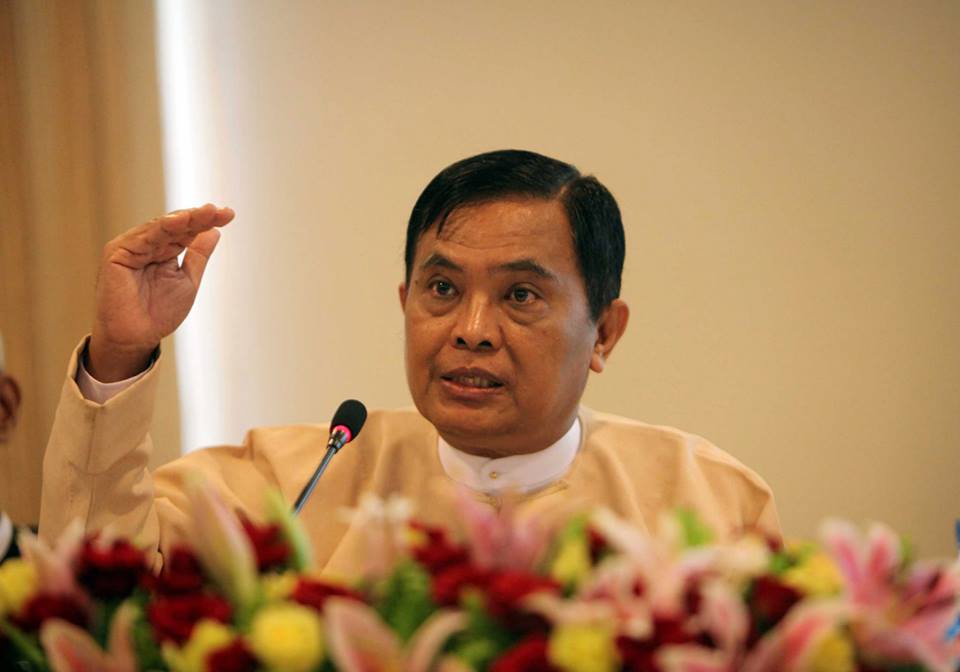Information Minister Aung Kyi conceded on Saturday that Burma’s media landscape is “not a good situation” because of legal shortcomings that he termed “loopholes”.
At an event marking World Press Freedom Day, held in Rangoon, the minister fielded several questions about the recent trial and detention of several reporters and other media professionals.
“These [charges against journalists] are happening because of a loophole in the media laws; the laws have been signed by the president but they still lack bylaws and regulations for implementation,” said Aung Kyi. “We are working as fast as we can to adopt the bylaws and regulations.”
He said that Burma’s legislature has not yet developed a standard procedure for dealing with journalists accused of unlawful behaviour, which makes trials difficult to adjudicate. He expressed confidence that additional regulations could smooth out some of the kinks.
He also maintained that in the case of Zaw Pe, a DVB video journalist recently sentenced to one year on charges of trespassing and disturbing a civil servant, the court acted appropriately and within the law.
“The charges were filed within the legal rights of the individual who was offended by the reporter, and I assume that the court’s verdict was in conformity with legal guidelines,” he said, “but I understand that this is not a good situation for media reporters.”
[related]
Aung Kyi explained that of the country’s two new media laws, the government-drafted Printers and Publishers Enterprise Law will come into effect first, once its bylaws have been approved. The Media Law, drafted by the Interim Press Council, will take longer because implementation awaits the formation of a permanent, independent press council and ratification of a code of ethics.
Progress is already well underway towards laying out a code of ethics for Burma’s media. The Interim Press Council convened on Saturday to approve a 27-point code drawn from principles laid out in the Universal Declaration of Human Rights.
Myint Kyi, general secretary of the Myanmar Journalists Network, expects the code to raise the standard of journalism in Burma by making media workers more accountable, adding that it “will allow them [journalists] to avoid damaging the credibility of individuals mentioned in the news … which has unintentionally happened from time to time.”
Burma’s media landscape has undergone rapid transformation since the start of the reform process in 2011, but some observers have cautioned that legal and judicial weaknesses could undermine or even undo progress made towards developing a free press in the country, which up until August 2012 subjected all publications to a strict state-run censorship board.
The dissolution of the censorship board, a series of political amnesties and the government’s decision to allow private daily newspapers prompted a streak of optimism in 2012, when the country leapt up the rankings in several global assessments, including the Reporters Without Borders’ World Press Freedom Index and the Freedom House press index. The World Press Freedom Index even anticipated that Burma could become a role model for the region, which chronically ranks among the world’s most restricted press environments.
Researchers for both reports made a point this year of emphasising that progress has stagnated, and perhaps even taken a few backward steps. Burma’s journalists continue to face legal action for their reporting, while the foreign press remains restricted and heavily scrutinised. Long-awaited legislation meant to replace the country’s antiquated and often dubbed “draconian” publication laws proved to be highly flawed and not inclusive; the Interim Press Council, a semi-independent body created to oversee media reform, claims to have been completely sidelined by the government during the drafting of the Publishers Enterprise Bill.
Aung Kyi on Saturday firmly defended both of the new laws, which he said offer clear protections for reporters while granting journalists the right to gather information from the government and all other publicly-funded organisations.



